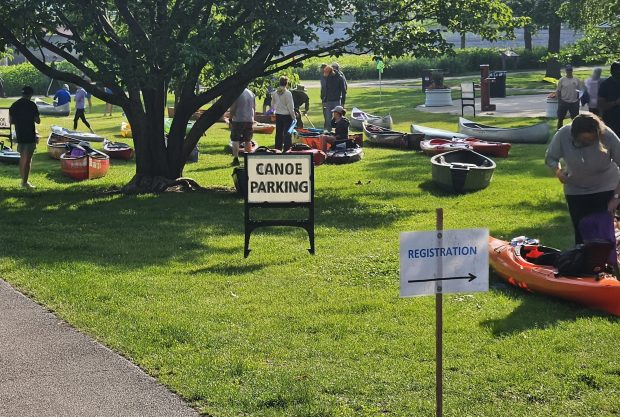Lesley Morales, a Waukegan High School senior who hopes to study nursing or microbiology at the University of Chicago, Northwestern University or New York University next year, received some advice from her counselor at the Washington Campus.
Morales, who will be a first-generation college student next fall, was part of the Schuler Scholars Program which has guided teens like her through the steps of applying to college and financing their education. Her counselor heard Schuler would cease operations.
“She called all of us Schuler Scholars into a room,” Morales said. “She told us Schuler was closing and Waukegan to College would take in all of us. I knew I needed help in the college selection process, and it seemed like it would be a good idea.”
Morales is one of 27 former Schuler Scholars, including seven current Waukegan High School seniors, who became new members of Waukegan to College in the past few months who will receive guidance in the college admission and financing process.
Now in its 15th year, Waukegan to College helps first-generation college students — many the children of immigrants, and some immigrants themselves — navigate the process of getting into college and graduating. It provides mentoring, tutoring and more.
Aaron Arnold, Waukegan to College’s executive director, said the organization set a goal of expanding by 75 students last year. It got 92 new members, including the 27 from Schuler. The goal is now 90. Young people can join in middle school.
“We’re here for the Waukegan community, and we’re going to help the students here,” Arnold said. “We added staff. We hired two new high school advisors, and one for middle school. We will add people on both high school campuses as needed.”
When Morales first learned the Schuler program was ending, she was not sure what she was going to do. College was a certainty and support was a necessity. The Schuler program had promised scholarships for successful completion.
“It sucked,” Morales said of her reaction when she first learned the news about the end of the Schuler program. “I didn’t know what I was going to do.”
Yet Morales said moving from Schuler to Waukegan to College was relatively seamless. She did not need to do a lot of college preparation over the summer, but as school started Monday, she is ready to give it more attention.
“It’s pretty much the same program, so the transition is pretty easy,” Morales said. “It’s easy because when you’re excited for something you have to be sure you’re in the right program.”
Jerome Abella is a Waukegan senior with hopes to attend Northwestern next year with a career goal to end up in the health sciences. He, too, expressed disappointment at the Schuler situation but is comfortable in his new surroundings. He also also learned about Waukegan to College from a school counselor.
“So far, it’s been pretty smooth, ”Abella said. “We have once-a-month meetings and support as we need it with applications and the essay. I’ve reconnected with some of my friends from Lewis Middle School who are here.”
I’mani Sellers is a 2013 Waukegan High School graduate with an undergraduate degree from the University of Pennsylvania and a graduate diploma from Harvard University. She worked for the Schuler Scholar program for six years, and is now Waukegan to College’s associate program director. The switch seemed natural, she said.
“This meets my mission and my values,” Sellers, a first-generation college graduate herself, said. “I’m originally from Waukegan. I want to support the community, and I like college preparedness.”
Arnold said the organization’s growth is fueled by strong community support from volunteers and donors — particularly corporate contributors, including Medline, AbbVie, AMGEN (formerly Horizon Therapeutics) and AT&T.
Francesca Olivier, Medline’s vice president of environmental, social and governance, said in an email supporting organizations like Waukegan to College is part of the company’s mission. The backing includes more than money.
“Medline is proud to support Waukegan to College, with volunteering and mentoring opportunities (too) that support the students in their first years of college to ensure they graduate and are prepared for the workforce,” Oliver said in the email.




